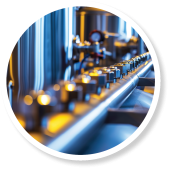https://doi.org/10.15255/KUI.2022.066
Published: Kem. Ind. 72 (5-6) (2023) 297–304
Paper reference number: KUI-66/2022
Paper type: Original scientific paper
Download paper:  PDF
PDF

Application of Different Metals as Electrode Material in Compost Leachate Treatment
L. Vrsalović, N. Vukojević Medvidović, S. Svilović and J. Šarić
Abstract
In this paper, different metallic materials (alloys of Fe, Al, and Zn) were investigated as sacrificial anodes during electrocoagulation (EC) for the treatment of compost leachate. Taguchi’s L9 orthogonal array design was applied to investigate the four controllable factors (different metallic material, initial pH value, stirring speed, and contact time) on decrease of chemical oxygen demand (COD) and electrodes mass loss. COD decrease reached values in the range of 75.72–92.97 %. The Taguchi optimisation results showed that the most effective factor for decrease of COD is the duration of the experiment, while the electrode material was for electrodes mass loss. The zinc electrode showed the lowest potential for use in the EC process for treatment of compost leachate, while the Al and Fe electrodes could be used in an acid or slightly acidic environment. The following decreasing order of energy consumption was recorded: Zn > Al > Fe. The measured values of metal electrode mass loss exceeded the theoretical values calculated using Faraday’s law in EC experiments with Al electrodes, while in experiments with Fe and Zn electrodes, those differences were insignificant.

This work is licensed under a Creative Commons Attribution 4.0 International License
Keywords
Fe, Al, Zn, sacrificial anode, electrodes mass loss, Taguchi optimisation









